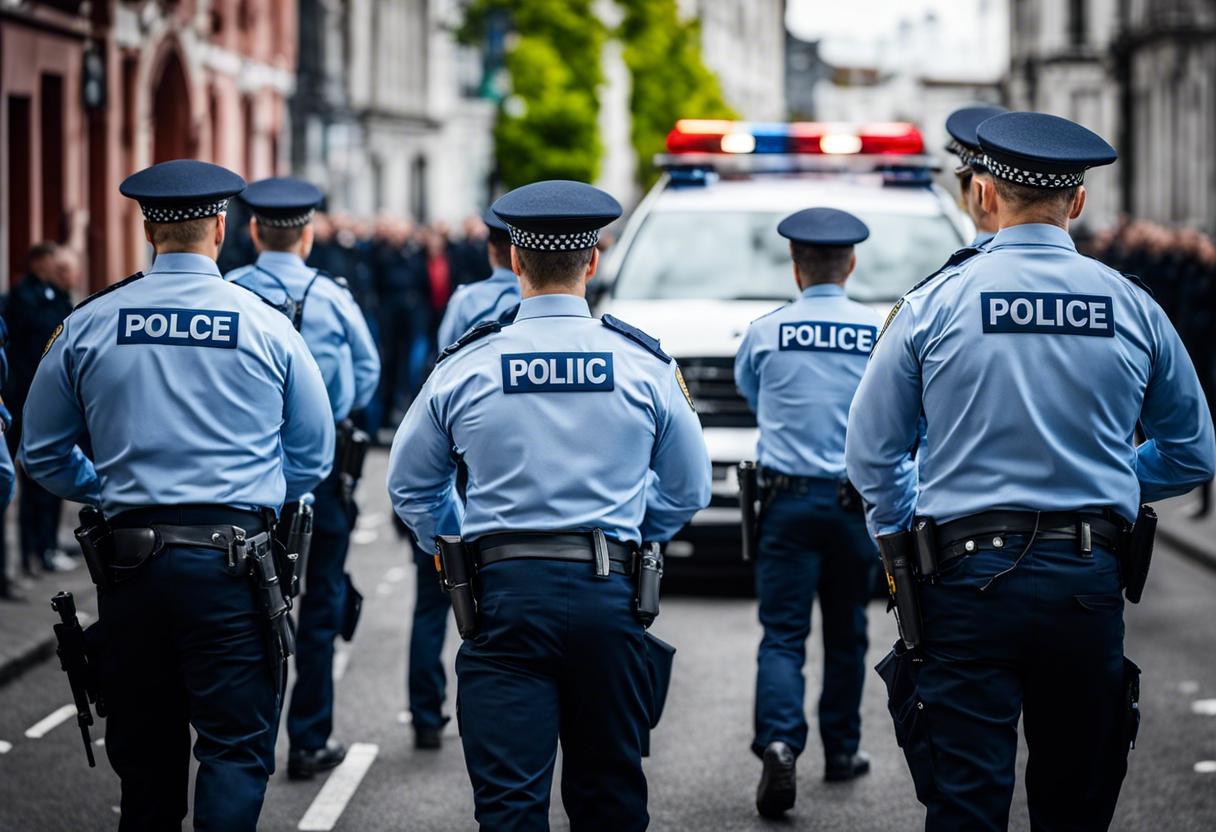Monitoring the activities of extreme right-wing groups poses a significant trial, with some members of the Garda Representative Association (GRA) expressing concerns for their safety, according to its leader. As Brendan O’Connor, head of the GRA, expressed in a lead-up to the forthcoming annual GRA conference, some Gardaí feel threatened and are anxious that present public order law does not empower them to act.
O’Connor highlighted recent pickets in front of elected official’s residences, such as the recent gathering of disguised protesters disrupting traffic and displaying anti-immigration posters at the residence of Roderic O’Gorman, Minister for Integration. Gardaí were on the scene, yet no one was detained.
This event has sparked widespread criticism among political figures, creating a conversation about the necessity for new legal measures. Simon Harris, the Taoiseach, questioned this need.
O’Connor remarked that the laws upon which they currently rely were likely formulated at a time when such situations were not foreseen, leaving officers unsure how to react to such incidents under these laws. He commended the remarks of the Taoiseach indicating potential new laws but added that more personnel, training, and equipment are essential.
The conference will consider a suggestion to provide every frontline Garda with a riot helmet for situations involving severe public disorder. O’Connor reiterated that all new Garda recruits used to receive basic public order training, a practice that has ceased.
Despite expressing concerns about being ill-equipped to tackle the issues of modern-day policing, Gardaí also have to endure personal attacks on a variety of subjects, including religion and identity.
According to O’Connor, they feel threatened, making their profession extremely challenging.
The conference, taking place on Tuesday and Wednesday in Westport, Co Mayo, will not be attended by either the Garda Commissioner Drew Harris or the Minister for Justice Helen McEntee, which is not common practice.
The GRA declined to extend an invitation to the Commissioner due to a multitude of issues, including the newly initiated Garda roster framework, mounting administrative tasks for gardaí and the disciplinary techniques spearheaded by Mr Harris. Ms McEntee expressed that she won’t be in attendance if the Commissioner has not been invited as per her judgement of appropriateness.
Ronan Slevin, serving as the Deputy General Secretary of GRA, voiced disappointment over the Minister’s decision of non-attendance but added that she would be welcomed should she rethink. James Morrisroe, a participant in the GRA’s central governing body, voiced worries over the reaction capabilities of frontline units in the face of another incident like the Dublin riots. He is uninformed of any supplementary public order preparation directed towards the frontline, unspecialized units, post the riots.
The GRA’s leaders also voiced dissatisfaction over the Commissioner’s demand of each Garda contributing 30 minutes of their shift towards road policing in reaction to a surge in road mortality. Mr O’Connor fears that this habit may diminish into nothing more than an unnecessary bureaucratic requirement leading the Garda to merely record their ongoing activities. He criticized the organisation’s increasing obsession with statistics.
Furthermore, Mr Morrisroe criticized how the headcount in the Roads Policing Department reduced by 50% over the past decade, implying that the new roadmap could be seen as a image-building strategy by the board potentially causing elongated reaction times to incidents.

